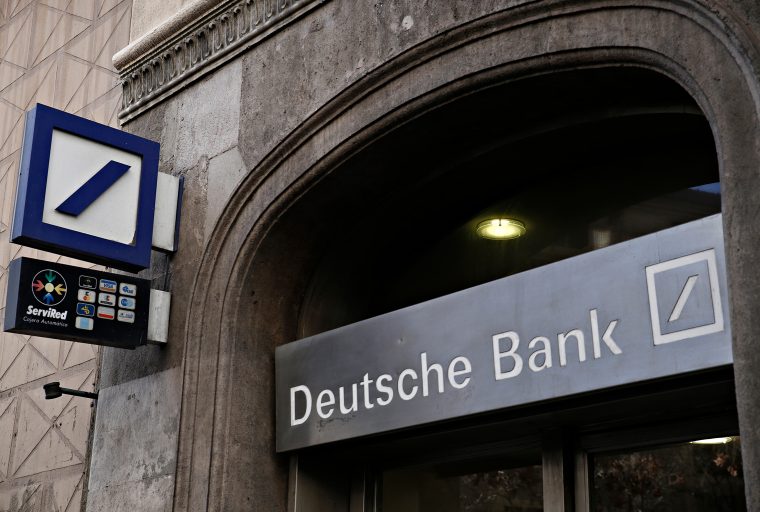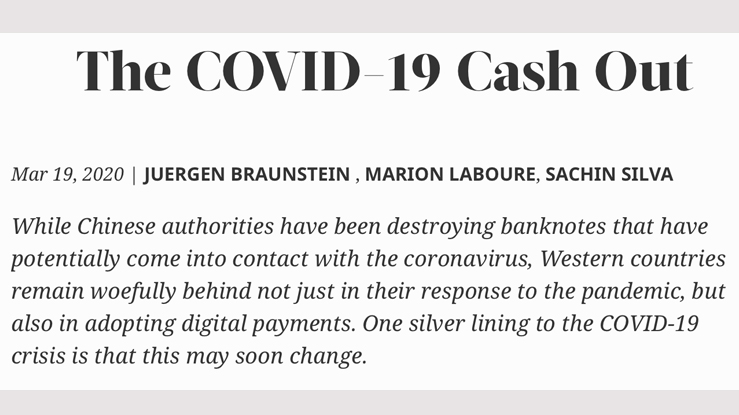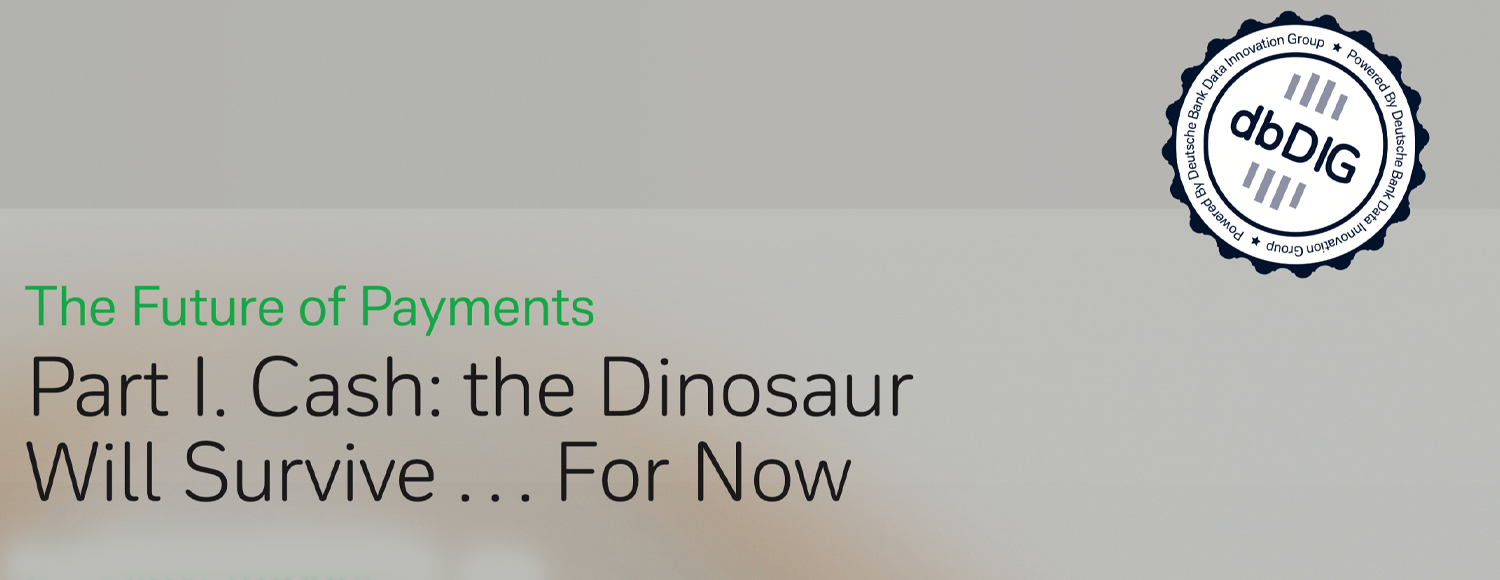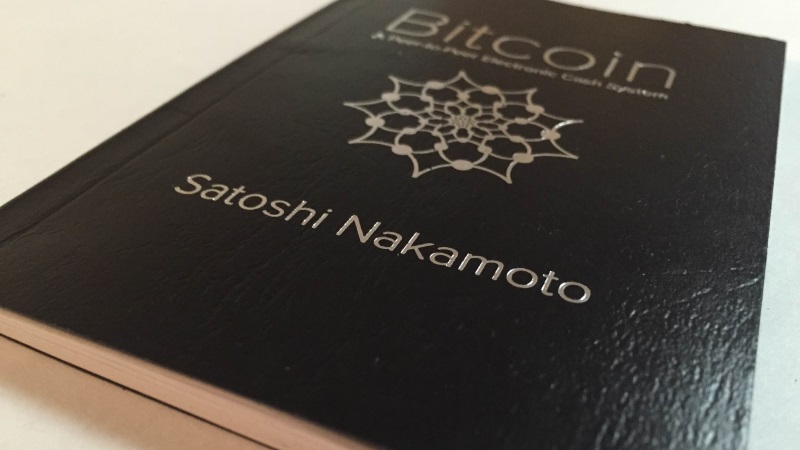[ad_1]

Since the covid-19 outbreak wreaked havoc across the world’s economies, the global multinational investment bank Deutsche Bank has been encouraging the use of digital currencies. The firm’s Twitter account and macro strategist Marion Laboure have been tweeting regularly about how coronavirus infection risks could “accelerate digital payment systems across the world.”
Also read: 5% Over Spot: Gold-Backed Tokens Tether Gold and Digix Sell for Higher Premiums
Deutsche Bank’s Macro Strategist Envisions a Digital Payment Transformation Post Covid-19
The coronavirus is surely changing the way we look at things and how we operate in our everyday lives. For years now, society has been aware that physical currencies can be dirty and the covid-19 outbreak has exemplified this fact. Researchers have reported that paper currency can carry a higher number of microorganisms than your toilet. It has been said that the seasonal flu virus can survive on a banknote for roughly 17 days. These statistics have caused governments across the world to store notes in separate locations and even scrub them. Last month, the U.S. Federal Reserve was storing repatriated USD from Asia in a different location. The month prior, when covid-19 was ravaging China, the People’s Bank of China (PBoC) explained that repatriated yuan notes were being disinfected.
The recognition of the infection risk will likely accelerate the push towards digital payment systems across the world. #Cash #DigitalTransformation https://t.co/fGcJUbSYrR
— Marion Laboure (@MarionLaboure) March 21, 2020
Germany’s Deutsche Bank AG and the financial institution’s macro strategist Marion Laboure think trends like these will bring about a number of digital currency concepts. On April 3, the bank’s official Twitter account stated:
The covid-19 pandemic is accelerating the rise of central bank digital currencies as many governments see the handling of cash as a potential risk factor. This will likely add to calls to move towards digital cash according to our Deutsche Bank research colleague Marion Laboure.
The bank’s macro strategist Marion Laboure has been tweeting about the coronavirus accelerating the use of digital currencies and causing a “transformation.” “The recognition of the infection risk will likely accelerate the push towards digital payment systems across the world,” Laboure said. In a recent report called “The Covid-19 Cash Out,” authors Juergen Braunstein, Marion Laboure, and Sachin Silva wrote about a possible transformation.

“Because the hand-to-hand exchange of physical currency could transmit the coronavirus, countries around the world are being forced to reconsider the use of cash,” the researchers detailed. The report highlights that the authors can’t predict what will happen in a post covid-19 economy, but they can envision a new type of payment structure. “Digital versions of cash currency, such as Sweden’s recently announced e-krona, are promising examples of what could be in store,” the report concludes.

‘Digital Payments Could Rebalance Global Economic Power,’ Says Deutsche Bank Researchers
Various other tweets and reports by Laboure and the official Deutsche Bank Twitter account mention central bank digital currencies (CBDCs). The financial institution’s reports also talk about digital assets that exist today like bitcoin, e-wallets, stablecoins, the possibility of a digital yuan, and balancing the monetary system. Various quotes from the bank’s researchers stress things like “By 2025, e-wallets are expected to be the second-most preferred method of payment after cards – and the first among millennials” and how the “transition to digital payments could potentially rebalance global economic power.”
Of course, the bank is shilling CBDCs and stablecoin concepts that represent digital fiat reserves. These new digital systems would be no different than the digits citizens use today, except it would use a blockchain. It’s not very likely a CBDC will rebalance any power because it’s centralized. Society has already seen what modern central banks worldwide will do to the citizenry’s money over time. With cryptocurrencies like bitcoin, on the other hand, Satoshi created a financial system that is not controlled by a single entity, corporation, government, or central bank.

It might be small right now, but this is why the crypto economy is worth close to a quarter of a trillion U.S. dollars. People find value in cryptocurrencies that can give people financial privacy, censorship resistance, and allow them to transact in a peer-to-peer fashion. Deutsche Bank is right that physical banknotes are dirty but the financial incumbent’s digital transformation ideas are questionable, to say the least. Ever since the modern central bank was born and the many that followed after, the monetary system has been plagued with busts and booms.
What do you think about Deutsche Bank shilling digital currencies because of covid-19? Let us know in the comments section below.
Image Credits: Shutterstock, Pixabay, Wiki Commons, Deutsche Bank Research
Disclaimer: This article is for informational purposes only. It is not an offer or solicitation of an offer to buy or sell, or a recommendation, endorsement, or sponsorship of any products, services, or companies. Bitcoin.com does not provide investment, tax, legal, or accounting advice. Neither the company nor the author is responsible, directly or indirectly, for any damage or loss caused or alleged to be caused by or in connection with the use of or reliance on any content, goods or services mentioned in this article.
Read disclaimer
[ad_2]
Source link



